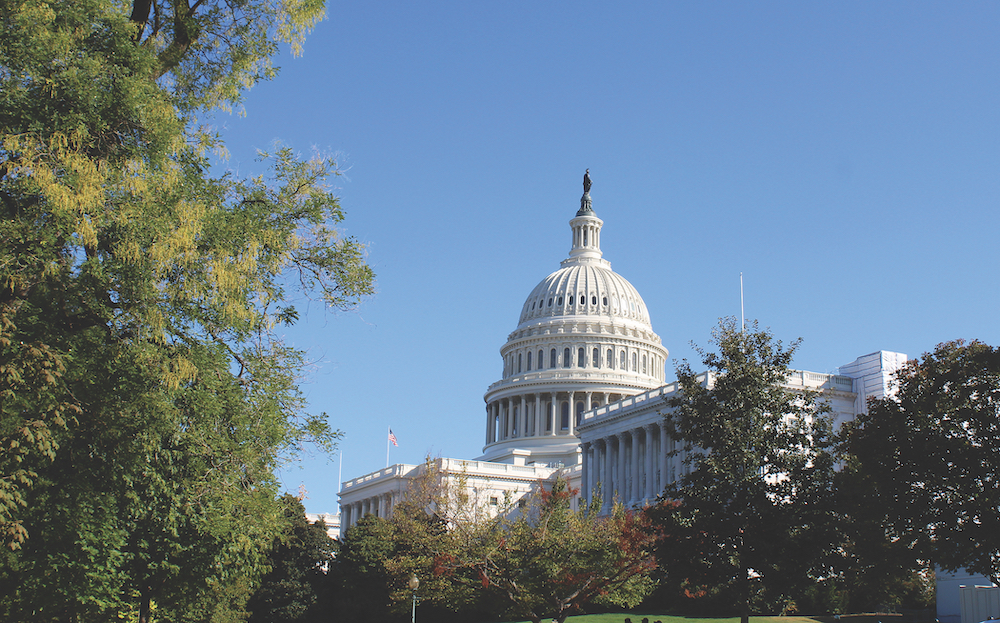Wisconsin passes bills to improve dental workforce
State is fourth to join Dental and Dental Hygienist Compact

Some significant changes are coming for Wisconsin.
Wisconsin lawmakers passed a health care package that will address the ongoing workforce shortage issues afflicting dentistry.
Gov. Tony Evers signed the bills into law Jan. 31.
The Wisconsin Dental Association supported several pieces of the legislation, including $20 million allocated for the Wisconsin Technical College System to invest in oral health care workforce initiatives; rural scholarships for qualified students enrolled in the Marquette University School of Dentistry; and entering the Dental and Dental Hygienist Compact.
“The last legislative session we really made workforce a big priority for our advocacy efforts. We’ve been talking with our local legislators and telling them our stories, and they’ve responded in correcting the legislation to help with the funding and alleviating the shortage,” said Chris Hansen, D.D.S., president of the Wisconsin Dental Association.
One bill the dental association supported will give the Wisconsin Technical College System $20 million to distribute among tech colleges. Tech colleges may submit funding requests for certain expenditures such as capital costs for equipment or facility expansion, instructional supplies, clinic fees and hiring bonuses of up to $5,000 per eligible instructor.
“Funding is everything, especially at the tech school level,” Dr. Hansen said. “You can’t get anything done with expanding training programs without getting funding.”
Approximately $4 million is specifically allotted for the expansion of current dental hygiene and dental assistant programs, establishment of new dental hygiene and assistant programs, and the establishment of a dental therapy program at Northcentral Technical College. The Wisconsin Dental Association registered neutral on the dental therapy legislation.
Patrick Tepe, D.D.S., chair of the dental association’s Legislative Advocacy Committee, said that although the Wisconsin Dental Association did not sponsor the dental therapy piece, there were many discussions that eventually led to it becoming neutral rather than opposed to it.
“We were very heavily involved in the negotiation of getting that legislation to something that we could be neutral on,” Dr. Tepe said. “Our leadership established some parameters and frankly, it was the way the process should work; both sides came to the table with integrity. We’re not supportive of it, but we felt we got to some language that we could be comfortable with.”’
The state dental association backed another bill that will provide students enrolled in the Marquette University School of Dentistry with an annual scholarship of up to $30,000 in exchange for practicing in a designated Dental Health Provider Shortage Area in a rural county. Following graduation, for every year they accepted the scholarship the dentist must practice in a designated area for 18 months.
Finally, Wisconsin will enter the Dental and Dental Hygienist Compact, which will allow license portability for dental professionals in member states. Wisconsin is the fourth state to enact the DDH Compact, joining Tennessee, Washington and Iowa. The compact will become operationalized once it has been enacted by seven states.
“We’ve had a great history with licensure compacts. It’s worked very well for us, and we were really hopeful to be one of those first seven states,” Dr. Tepe said.
He added that he felt thrilled the package passed and that the dental industry is receiving the attention it deserves.
“We know that a lot of industries have workforce issues, right? But to see our leadership, our Assembly and Senate leadership specifically recognize that dental care is important, I think is thrilling,” Dr. Tepe said. “We’ve got a lot of work to do, a lot of priorities we want to get to, but considering that we’ve been essentially bogged down on one issue for several years, it’s exciting to start to actually show results to our members.”



